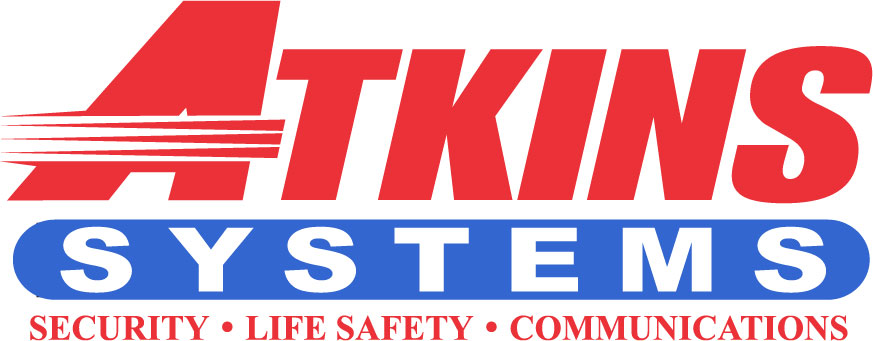
Are Security Alarm Systems Tax Deductible? An In-Depth Analysis for Georgia Businesses and IRS Tax Code Implications
Disclaimer: This guide provides a general overview and is not a substitute for professional tax advice. Businesses should consult a qualified tax advisor for specific recommendations and guidance.
Investing in security alarm systems is a prudent decision for businesses, not just for safety but also for potential tax advantages. This comprehensive guide looks deep into the tax implications of security alarm system installations for businesses in Georgia, examining IRS tax code nuances and state-specific considerations.
FAQs: Tax Deductibility of Security Alarm Systems for Businesses in Georgia
Yes, under Section 179 of the IRS Tax Code, businesses can potentially deduct the full cost of a security alarm system in the year it is purchased and installed. However, there are limits to this deduction (around $1,050,000 for 2021), and the system must be used for business purposes more than 50% of the time.
You should keep all purchase invoices, installation receipts, bank statements or proof of payment, and any other relevant documentation that details the cost and use of the security system. It's also advisable to maintain records that demonstrate the system's business use, especially if installed in a home office.
Generally, deductions for business expenses like security systems are claimed on IRS Form 1040, Schedule C for sole proprietors or the appropriate business tax return form for other business structures. If you're claiming a Section 179 deduction, you'll also need to complete Form 4562.
Depreciating a security system over its useful life (usually 5-7 years) allows you to spread out the deduction over several years, which can be beneficial for managing taxable income. The method of depreciation chosen (e.g., straight-line or accelerated) will affect the amount deducted each year.
Understanding the IRS Tax Code:
Business Expense Deductions:
- Overview: The IRS allows businesses to deduct expenses that are deemed “ordinary and necessary” (IRS Publication 535). This typically includes rent, salaries, and utilities, among other operational costs.
- Security System Eligibility: Security alarm systems, integral to safeguarding a business, fall under this category. To qualify, the expense must be common in the industry and necessary for the business.
- Documentation Requirements: Keeping detailed records of these expenses, including invoices and proof of payment, is essential for tax filing and potential audits.
Security Systems as Deductible Expenses:
- Criteria for Deductibility: The primary criterion is that the security system must serve a business purpose. For instance, a system installed at a home office must be used exclusively for business to be fully deductible.
- Partial Use Consideration: If the security system serves both personal and business purposes (as in a home office), only the portion attributed to business use might be deductible.
Georgia State Tax Considerations For Security System Deductions:
Conformity to Federal Guidelines:
- State vs. Federal Taxation: Georgia’s state tax system generally mirrors the federal tax system, but there could be differences in how deductions are treated.
- Professional Consultation: Given the potential variances, consulting a tax advisor familiar with Georgia’s tax laws is crucial for local businesses.
Capitalizing vs. Expensing:
- Capital Assets: If a security system is considered a capital asset (having a useful life beyond a year), it might need to be capitalized and depreciated over time.
- Direct Expense: Alternatively, if the system is considered an ordinary expense, it can be deducted in the year of purchase. The decision depends on factors like the cost and longevity of the system.
Depreciation of Security Systems:
Capitalizing and Depreciating:
- Depreciation Process: Capital assets are depreciated over their useful life. For security systems, this could be over a period of 5 to 7 years, based on IRS guidelines.
- Depreciation Methods: Businesses can choose from various depreciation methods, like straight-line or accelerated, impacting the annual deduction amount.
Section 179 Deduction:
- Immediate Expensing: Section 179 allows businesses to deduct the full cost of qualifying equipment in the year of purchase, subject to limits (around $1,050,000 for 2021).
- Qualification Criteria: The equipment must be used for business purposes more than 50% of the time to qualify.
Tax Documentation and Compliance:
Accurate Record-Keeping:
- Importance: Maintaining precise records of purchases, installations, and maintenance of security systems is key for tax purposes.
- Audit Readiness: Detailed documentation ensures readiness for any IRS audits and substantiates the deductions claimed.
Consulting Tax Professionals:
- Expert Advice: Tax laws are complex and frequently updated. Professional advice is invaluable in navigating these changes and ensuring compliance.
- Customized Strategy: A tax expert can provide strategies tailored to a business’s specific circumstances, maximizing tax benefits.
Atkins Systems: Securing Cherokee County Since 1983
For Georgia businesses, the investment in security alarm systems not only bolsters safety but also offers potential tax benefits. Understanding the IRS tax code and Georgia’s specific regulations is essential to leverage these advantages fully. Regular consultations with tax professionals can ensure businesses stay compliant and make informed decisions about their security system investments.
